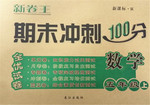题目内容
Dear Dad,
Today I was at the shopping mall and I spent a lot of time reading the Father's Day cards. They all had a special message that in some way or another reflected how I feel about you. Yet as I selected and read, it occurred to me that not a single card said what I really want to say to you.
You'll soon be 84 years old, Dad, and you and I will have had 55 Father's Days together. I haven't always been with you on Father's Day but I've always been with you in my heart.
You know, Dad, there was a time when we were separated by the generation gap. You stood on one side of the Great Divide and I on the other.
The Father-Daughter Duel shifted into high gear ( 档位) when you taught me to drive the old Dodge and I decided I would drive the '54 Chevy whether you liked it or not. The police officer who sent me home, after you reported the Chevy stolen, didn't have much tolerance for a stubborn 16 year old, while you were so tolerant about it, Dad, and I think that was probably what made it the worst night of my life.
Our relationship greatly improved when I married a man you liked, and things really turned around when we began making babies right and left. Somewhere along the line, the generation gap disappeared. I suppose I saw us and our relationship as aging together, rather like a fine wine.
But the strangest thing happened last week. I was at a stop sign and I watched as you turned the corner in your car. It didn't immediately occur to me that it was you because the man driving looked so elderly and fragile behind the wheel of that huge car. It was rather like a slap in the face delivered from out of nowhere. Perhaps I saw your age for the first time that day.
I guess what I'm trying to say, Dad, is what every son and daughter wants to say to their Dad today. Honoring a father on Father's Day is about respect and sharing and acceptance and tolerance and giving and taking. It's about loving someone more than words can say, and it's wishing that never had to end.
I love you, Dad.
Love,
Jenny
1.How did Jenny probably feel on the night she was sent home by the police?
A. Disappointed. B. Nervous.
C. Guilty. D. Frightened.
2.We can learn from the passage that Jenny and her father_________.
A. kept in touch by writing each other
B. are separated due to the generation gap
C. have been getting along very well
D. had a hard time understanding each other
3.Why did Jenny feel strange when she saw her father last week?.
A. She seldom saw him driving that huge car.
B.She had never realized his being old and weak.
C. She didn't expect to meet with him there.
D.She had never seen him driving so slowly before.
4.Jenny wrote his father this letter to _________
A. tell him about their conflicts
B. say sorry for her being stubborn
C. express her gratitude to him
D. remind him of the early incident
1.C
2.D
3.B
4.C
【解析】
试题分析: 这篇文章是一封女儿在父亲节之际写给八十四岁老父亲的一封感人至深的信。多年之后,作者回忆旧日时光,让读者也感受到了“父爱如山”这句话的含义。
1.C考查推理判断。从文章第四段while you were so tolerant about it, Dad, and I think that was probably what made it the worst night of my life.可知:作者在被警察送回家的夜晚因为父亲对她的宽容而内心愧疚。故选C。
2.D考查细节理解。根据文章第三段there was a time when we were separated by the generation gap. You stood on one side of the Great Divide and I on the other.可知Jenny和父亲曾经不能很好的了解彼此。故选D。
3.B考查细节理解。从文章第六段It didn't immediately occur to me that it was you because the man driving looked so elderly and fragile behind the wheel of that huge car.可知:作者上星期看到父亲时感到奇怪是因为她没有意识到父亲竟然如此衰老。故选B。
4.C考查推理判断。文章开头介绍了这封信的写作时间是在父亲节,当作者挑选父亲节贺卡时内心的感受:it occurred to me that not a single card said what I really want to say to you.而且在文章末段作者又表达了“对父爱的感激之情”。故选C。
考点:记叙文。

 课程达标测试卷闯关100分系列答案
课程达标测试卷闯关100分系列答案 新卷王期末冲刺100分系列答案
新卷王期末冲刺100分系列答案 全能闯关100分系列答案
全能闯关100分系列答案